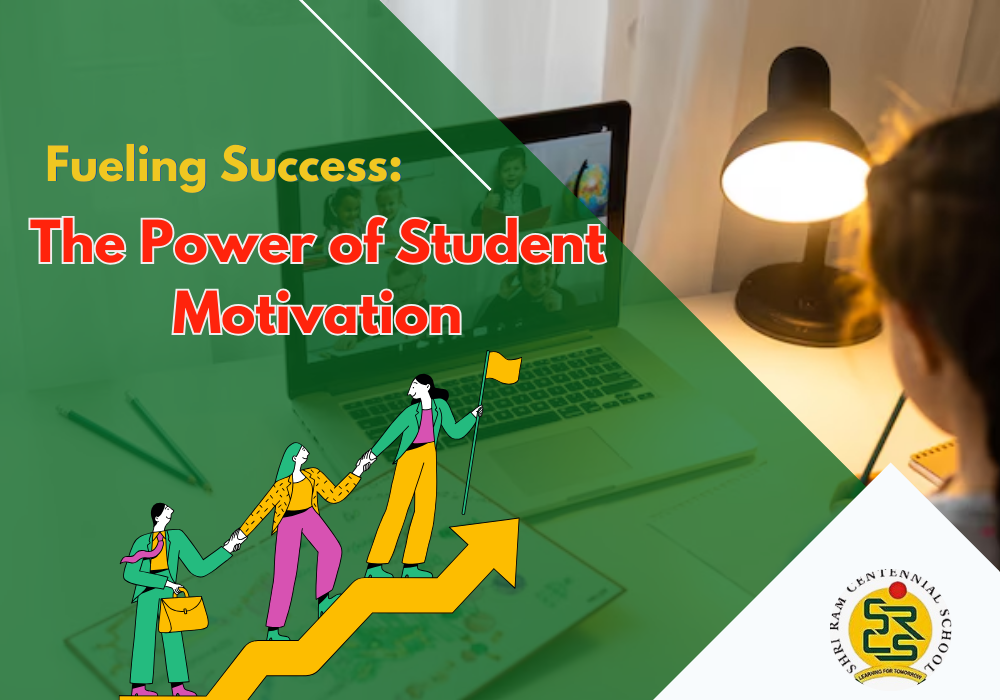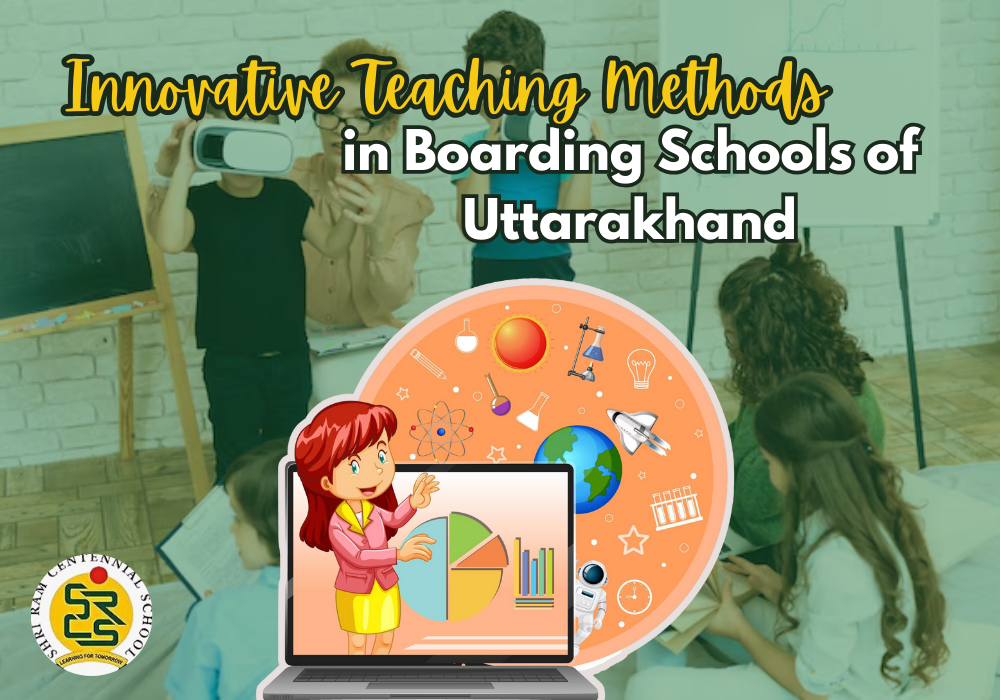In the competitive world of academics, where every student strives to shine, motivation becomes the key to success. For students, it is the fuel that drives them toward their goals, keeping them focused and determined through the toughest of challenges.
In schools like Shri Ram Centennial School and even in some of the renowned boarding schools in Uttarakhand, student motivation plays a crucial role in shaping bright futures.
Whether it’s striving for high grades, excelling in extracurricular activities, or building skills for life, motivation is the underlying force that propels students forward.
Table of Contents
ToggleUnderstanding the Importance of Student Motivation

Student motivation isn’t just about pushing students to study harder; it’s about helping them find the inner drive that aligns with their personal goals and values.
Motivated students are more likely to engage in their learning, overcome obstacles, and persist when things get tough.
Motivation influences everything from how students manage their time to how they approach tasks. It is the backbone of success, fueling a student’s determination to excel.
The Role of Parents in Enhancing Student Motivation
Parents play a pivotal role in fostering a positive environment that nurtures student motivation. It’s not about simply pushing students to achieve; it’s about understanding their needs, strengths, and weaknesses.
When parents show interest in their child’s academic journey and provide encouragement, it makes a huge difference. Positive reinforcement and consistent support can help boost a child’s self-confidence and motivation.
Parents should focus on creating an environment that balances discipline with freedom, enabling students to take ownership of their learning.
By celebrating small wins and offering constructive feedback, parents can instill a growth mindset in their children, which is essential for long-term motivation.
Building Self-Motivation: Tips for Students

For students, developing intrinsic motivation is a game changer. External rewards, like grades or praise, are helpful but cannot sustain motivation in the long term.
The real key is developing a passion for learning and setting personal goals. Here are some tips that can help students maintain and enhance their motivation:
Set Clear and Achievable Goals
One of the first steps in building motivation is setting clear goals. Students should outline their academic and personal objectives and break them down into smaller, manageable tasks. When a goal feels too distant or unachievable, it can overwhelm students and drain their motivation.
By dividing big tasks into smaller milestones, they can celebrate each success along the way, creating a sense of accomplishment and boosting their drive to keep going.
Cultivate a Growth Mindset
A growth mindset is the belief that abilities and intelligence can be developed through effort and perseverance. Students who adopt this mindset are more likely to see failures as opportunities to learn rather than obstacles.
Embracing challenges and learning from mistakes is crucial for maintaining motivation. It encourages students to keep trying even when things don’t go as planned, fostering resilience and determination.
Stay Organized
Disorganization can quickly lead to stress, which dampens motivation. Students should create a study schedule, prioritize tasks, and set deadlines for assignments.
Staying organized not only helps in reducing anxiety but also provides a clear path to follow, ensuring that tasks are completed on time. This sense of control significantly boosts motivation, as students feel more capable of handling their responsibilities.
Find What Inspires You
Motivation is often sparked by passion. Students should explore different subjects and activities to discover what excites them. Whether it’s a particular academic subject or a hobby, finding something that genuinely interests them will naturally fuel their drive to succeed. When students are passionate about what they are doing, motivation becomes much more sustainable.
The Role of Teachers in Motivating Students
Teachers are often the most direct influencers of student motivation. A teacher who understands the unique needs of each student can personalize the learning experience to keep students engaged and motivated.
In addition to providing academic support, teachers who build positive relationships with their students create an environment of trust and respect. When students feel supported, they are more likely to take risks and push themselves to achieve.
Teachers can also use various motivational strategies, such as offering praise, incorporating interactive activities, and providing real-life examples that connect lessons to real-world experiences.
This makes learning relevant and engaging, which further fuels motivation. By fostering a positive classroom environment where students feel safe and valued, teachers can enhance student motivation and academic performance.
External Factors That Affect Student Motivation

While internal factors like personal goals and mindset are important, external factors can significantly impact a student’s motivation as well. Here are some external elements that can either hinder or promote motivation:
Social Influence
Peers and social groups have a powerful influence on student motivation. Students often seek approval and validation from their friends.
Positive peer pressure, where students encourage each other to perform well, can drive motivation. On the other hand, a toxic environment or negative peer influence can decrease motivation and lead to procrastination.
Technology and Distractions
In today’s digital age, distractions from social media, video games, and other forms of entertainment can easily steal a student’s attention.
While technology can be a great motivator when used for educational purposes, excessive screen time can undermine focus and reduce productivity. Students need to find a balance between utilizing technology for learning and avoiding distractions.
Support Systems
Having a strong support system is crucial for maintaining motivation. This includes not only family and teachers but also friends, mentors, and counselors.
When students know they have people to turn to for guidance and encouragement, they are more likely to stay motivated, especially during tough times.
The Impact of Motivation on Academic Performance
It’s clear that motivation has a direct impact on academic success.
Motivated students are more likely to put in the effort required to master difficult subjects, complete assignments on time, and engage in class discussions.
When motivation is high, students are more likely to take pride in their work and push themselves to achieve their personal best.
Additionally, motivated students are better equipped to handle academic setbacks. Rather than feeling defeated by challenges, they see them as opportunities for growth. This resilience is key to long-term success and is often a reflection of a student’s inner motivation.
Conclusion: Fueling Success Through Motivation
Ultimately, student motivation is a powerful force that shapes academic success. It’s not just about grades and achievements; it’s about fostering a love for learning and empowering students to reach their full potential.
Parents, teachers, and peers all play an essential role in creating an environment where motivation thrives.
By setting goals, cultivating a growth mindset, and building strong support systems, students can fuel their success and achieve greatness in all aspects of their lives.
Motivation isn’t just a one-time push; it’s a continuous journey that leads to a lifetime of learning, growth, and success.










